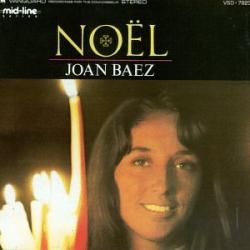This is my last post as a regular contributor to the Anxious Bench. If I’m honest, I haven’t exactly been contributing regularly for the past few months, but I put off crafting this farewell post because I was reluctant to make it official. The time has come, though, and so I thought I’d take some time to reflect on my years here at the Anxious Bench.
It was Beth Barr who first recruited me tojoin back in the summer of 2016. Needless to say, a lot has happened in the past five-and-a-half years. At that time I’d just begun to blog, only very sporadically. One of my first forays was at the request of Oxford University Press, who asked me to promote my 2015 book A New Gospel for Women on their OUPblog. I wrote a brief piece and discovered rather quickly that in all likelihood more people would read that one post than would ever read the book itself. And, I realized, that was fine. As much as I love a good academic book, I understand that for many people, reading 300+ page footnoted academic monographs isn’t part of their daily routine. But I also saw that the substance of my research and writing was of real interest to people who were not academics, especially to Christian women—few of whom had pursued careers in academics. So I kept writing. Sometimes just Facebook posts, sometimes on blogs like Dordt’s in all things.
When Beth invited me to join Anxious Bench, it seemed like a perfect fit. I loved the community of historians covering a wide swath of topics and perspectives, all interested in exploring “the relevance of religious history for today.” My first post was a reflection on attending the past and future of Christian feminism in light of attending a conference featuring women like Letha Scanzoni, Diana Butler Bass, Cherice Bock, Grace Ji-Sun Kim, and Austin Channing Brown. My second post was a harbinger of what was to come. Together with my research assistant Katelyn Guichelaar, I published a linguistic analysis of Hillary Clinton’s and Donald Trump’s campaign speeches. We uncovered a number of fascinating findings, particularly in comparing their rhetoric about God and faith. Whereas Clinton spoke explicitly and reverently about her Christian faith in the speeches analyzed, Trump referenced God twice (once irreverently), while referencing himself 850 times. All of this led me to ask why Trump was polling so highly with white evangelicals:
Are there insights religious historians can offer here?
For example, has an embrace of patriarchal power in the church and home situated evangelicals to look for an autocratic patriarch to lead the nation? Has a self-referential trend in contemporary Christianity blinded evangelicals to Trump’s narcissism? Have deep roots in premillennialism made evangelicals more prone to demonize “the Other”? Have “Christian values” long been but a veneer for racism, sexism, or xenophobia? Has Christian nationalism destroyed any semblance of Christian witness?
That post went viral, garnering tens of thousands of views and leading to dozens of media requests that stretched out for more than a year. At the time, I can honestly say I had no inkling that I’d end up writing a book exploring precisely these questions, a journey that I would end up documenting on this blog. (I wrote about Jesus and John Wayne before it published in June 2020, and then reflected on its initial reception three months out. I also added a list of follow-up readings.)
That said, one of the things I’ve most appreciated about blogging at the Anxious Bench is the wide array of topics I’ve been able to explore: History, Empathy, and Race in America; An Open Letter to the ESV Translation Committee; The Problem with Protecting our Wives and Daughters, and (one of my favorites), Hey, John MacArthur. You have a culture. It’s called white (Christian) patriarchy.
I’ve written on decluttering, on Pumpkin Spice, on why #MeToo is a Christian problem, on Christian scholarship and defining evangelicalism and more on defining evangelicalism. On Christmas, on almost attending a Trump rally, and on the Amish. And on Kierkegaard and that BBC dad, and on Kate Bowler, Pete Buttigieg, Jerry Falwell Jr, and Rachel Held Evans.
I’ve had the opportunity to host good friends and colleagues such as George Marsden, Janel Kragt Baker, Jim Bratt, David Congdon, Peter Choi, Tim Gloege, Elesha Coffman, Amar Peterman, Abram Van Engen, and Josh Parks. I also mourned a beloved colleague.
One of the accomplishments I’m most proud of during my tenure at the Anxious Bench is recruiting Melissa Borja to join our ranks. My greatest debt during my time here is without question to Chris Gehrz, our fearless blogmeister who has remained endlessly cheerful (or at least pretended to be) every single time I forgot to post, and who has served as a model historian, Christian, and scholar.
I’m grateful, too, to the many readers who have come here, week after week, year after year. It’s been a pleasure. And although I’m retiring as a regular contributor, I do hope to return on occasion with guest posts when the inspiration strikes.
For the most part, however, my goal is to focus my writing as much as possible on my next book, a cultural history of white Christian womanhood called Live Laugh Love. If you’re curious how that one’s going, I’ll post occasional updates over on Twitter (@kkdumez). Until then, thank you for finding me here, for all of your support along the way, and for joining in the conversation.
Kristin

















